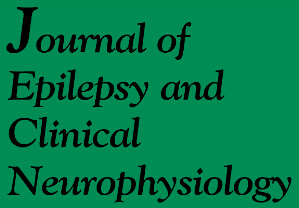ABSTRACT OBJECTIVES: Patients with temporal lobe epilepsy (TLE) and unilateral severe hippocampal sclerosis (HS) may have contralateral temporal scalp ictal onset. This has recently been called "burned-out hippocampus", which is believed to be a rare entity. In this study we report four patients with unilateral hippocampal sclerosis and contralateral ictal onset registered by scalp electrodes. We discuss the importance of such cases in presurgical evaluation of patients with TLE, as well as possible strategies used for evaluation of these particular cases. PATIENTS AND METHODS: We reviewed charts from all patients with TLE submitted to pre-surgical evaluation, which included high resolution MRI and prolonged video-electroencephalogram (video-EEG) monitoring with scalp and sphenoidal electrodes, during a three-year period (2002-2004). We looked for patients who only had seizures that were clearly contralateral in location to the atrophic hippocampus. RESULTS: Four patients fulfilled the criteria above. Two of these patients had semi-invasive video-EEG monitoring with foramen ovale (FO) electrodes, which revealed seizures originating from the temporal lobe with the atrophic hippocampus, hence confirming false lateralization in the scalp-sphenoidal EEG. These patients were submitted to surgical treatment and had favorable prognosis after surgery. CONCLUSIONS: Burned-out hippocampus syndrome may not be as rare as it was previously believed. Further studies will be necessary before one can affirm that patients with unilateral HS and scalp ictal EEG showing contralateral ictal onset may be operated without confirmation of the epileptogenic zone by invasive monitoring. In these patients, semi-invasive monitoring with FO electrodes might be an interesting alternative.
temporal lobe epilepsy; hippocampal sclerosis; false lateralization; foramen ovale electrode







